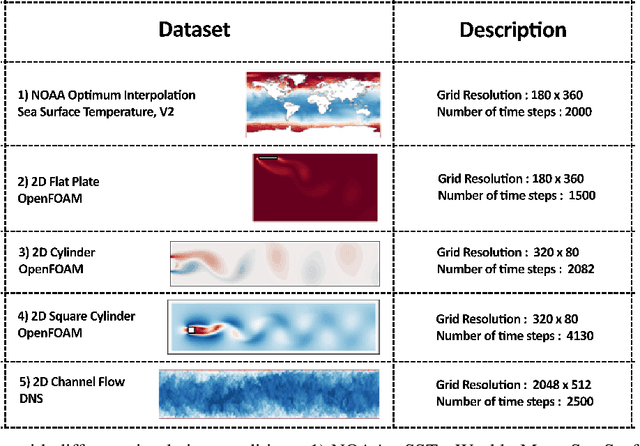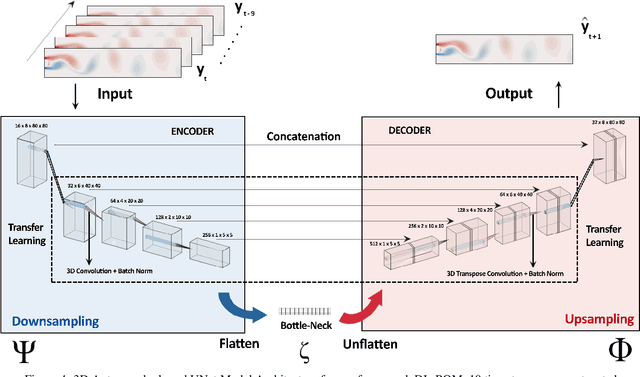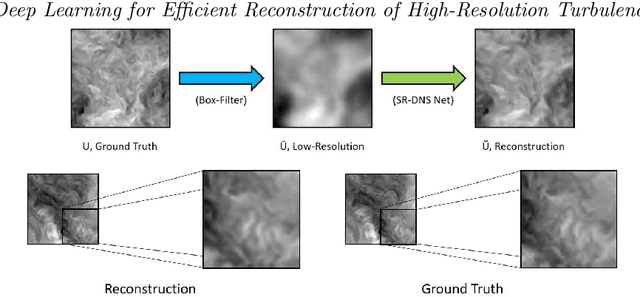Pranshu Pant
Deep Learning for Reduced Order Modelling and Efficient Temporal Evolution of Fluid Simulations
Jul 09, 2021



Abstract:Reduced Order Modelling (ROM) has been widely used to create lower order, computationally inexpensive representations of higher-order dynamical systems. Using these representations, ROMs can efficiently model flow fields while using significantly lesser parameters. Conventional ROMs accomplish this by linearly projecting higher-order manifolds to lower-dimensional space using dimensionality reduction techniques such as Proper Orthogonal Decomposition (POD). In this work, we develop a novel deep learning framework DL-ROM (Deep Learning - Reduced Order Modelling) to create a neural network capable of non-linear projections to reduced order states. We then use the learned reduced state to efficiently predict future time steps of the simulation using 3D Autoencoder and 3D U-Net based architectures. Our model DL-ROM is able to create highly accurate reconstructions from the learned ROM and is thus able to efficiently predict future time steps by temporally traversing in the learned reduced state. All of this is achieved without ground truth supervision or needing to iteratively solve the expensive Navier-Stokes(NS) equations thereby resulting in massive computational savings. To test the effectiveness and performance of our approach, we evaluate our implementation on five different Computational Fluid Dynamics (CFD) datasets using reconstruction performance and computational runtime metrics. DL-ROM can reduce the computational runtimes of iterative solvers by nearly two orders of magnitude while maintaining an acceptable error threshold.
Deep Learning for Efficient Reconstruction of High-Resolution Turbulent DNS Data
Oct 21, 2020



Abstract:Within the domain of Computational Fluid Dynamics, Direct Numerical Simulation (DNS) is used to obtain highly accurate numerical solutions for fluid flows. However, this approach for numerically solving the Navier-Stokes equations is extremely computationally expensive mostly due to the requirement of greatly refined grids. Large Eddy Simulation (LES) presents a more computationally efficient approach for solving fluid flows on lower-resolution (LR) grids but results in an overall reduction in solution fidelity. Through this paper, we introduce a novel deep learning framework SR-DNS Net, which aims to mitigate this inherent trade-off between solution fidelity and computational complexity by leveraging deep learning techniques used in image super-resolution. Using our model, we wish to learn the mapping from a coarser LR solution to a refined high-resolution (HR) DNS solution so as to eliminate the need for DNS simulations on highly refined grids. Our model efficiently reconstructs the high-fidelity DNS data from the LES like low-resolution solutions while yielding good reconstruction metrics. Thus our implementation improves the solution accuracy of LR solutions while incurring only a marginal increase in computational cost required for deploying the trained deep learning model.
 Add to Chrome
Add to Chrome Add to Firefox
Add to Firefox Add to Edge
Add to Edge